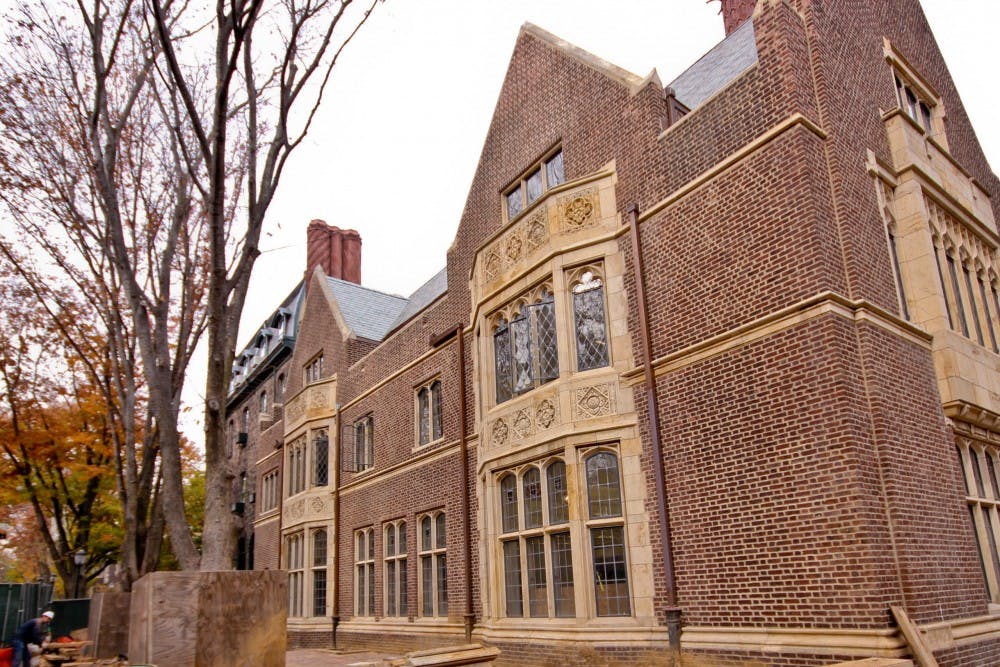
In the wake of recent cultural conflicts on campus, many Asian students are challenging the University and campus organizations to do more to bridge cultural gaps between ethnic groups and create more dialogue and awareness about racial issues.
Rising Wharton senior Lawrence Li, the Vice Chair of Finance for the Asian Pacific Student Coalition, believes that, over the past academic year, racial issues have become more visible.
“The main things that come to mind would be the Phi Delt incident and the more recent Vietnamese Student Association incident,” Li said. ”[Such] incidents have just brought racial relations to the front of the discussion, whereas last year, during my sophomore year, the main topic of discussion was mental health,” he said.
Rising College senior Kristen Kelly, the Chair of the Asian American Studies Undergraduate Advisory Board, said that she does not think there has been an increase in the “instances of microaggressions and outright racism” over the course of her time at Penn, but believes that tangible change still needs to be made.
“In many cases, I feel that discourse exists within our own communities, but doesn’t always expand outside of them — and, when it does, it can be met with significant resistance from others,” Kelly said.
Rising Engineering junior Rich Chaudhary, the Vice Chair of Finance for the Asian Pacific Student Coalition, agreed that the gaps among cultural bubbles must be bridged.
“One thing that happens a lot is self-segregation among cultural groups,” Chaudhary said. “[The Penn South Asian Society] tries to make people aware that there are other cultural groups. Organizations within the universities should push their members to, on a personal level, not be afraid to break the bounds of their bubble and their cultural group and be inclusive of other cultures, and definitely try different groups than they have before.”
Chaudhary added that he believes the University itself should play a role in improving cultural relations.
“The University should really strive to make it so that these different groups, the 5B organizations and the three cultural houses, are mandated to do different cross-cultural activities and collaborate with each other so that the students involved with the organizations are able to come into regular contact with each other, learn more about each other and create more dialogue,” he said.
Li, on the other hand, emphasized the importance of educating the broader Penn community to changing the dynamic of cultural relations on campus.
“I think education is the most important thing,” he said. “That we’re not ignorant about what’s going on around us and that ... ultimately education is how we move toward a society that is ultimately more accepting of all people as a whole.”
Li said that, in light of the Phi Delta Theta incident in which the fraternity posed with a black sex doll for its holiday photo, the Asian Pacific Student Coalition has been working with the Office of Fraternity and Sorority Life to potentially implement cultural sensitivity training. Even though Asian students were not victimized by the incident, they hope to partake in the training in order to prevent future issues.
But he also noted the importance of having an education program that involves the entire University.
“One thing I have thought about would be a poster campaign like that of Office of Alcohol and Other Drugs, but more based towards education on cultural awareness,” he said.
Kelly agreed with Li’s emphasis on education.
“We need to ask ourselves: what are we doing to educate one another, and educate ourselves, about these issues? I’d love to see the University doing more to support our cultural centers and our academic departments,” she said.
Kelly cited the academic requirements as an important way that the University is encouraging cultural dialogue.
“I think that this [academic requirements that emphasize culture] is an important requirement to have, and appreciate the effort on the part of the University to expand student awareness about issues of diversity in the US,” she said. “At the same time, I feel like policymakers may be disconnected from the student experience if they think that this action is sufficient to make a positive social climate for minority students.”
But Kelly believes that the current requirements may not be enough.
“Maybe that means we should expand the lists of courses that apply for these sector and distributional diversity requirements, or find ways to expand programs that offer minors into fully fledged departments,” she added.
2015 College graduate Patrick Vinh, who was one of the hosts of the event at which the altercation between members of the Vietnamese Association and the fraternity OZ took place, does not believe that education is the answer.
“Caucasian students really aren’t aware or aren’t interested in becoming educated about other cultures. It’s not about educating [Caucasian students], it’s about integrating them, getting rid of stereotypes,” he said.
Vinh added that it was not the policies at Penn that need changing, but the atmosphere.
“I have to hand it to Penn,” he said. “It was a forerunner of the other Ivies, the first Ivy to have women. Penn is pretty progressive. Now, the atmosphere [regarding racial relations] needs to change. There needs to be a different focus at Penn.”
The Daily Pennsylvanian is an independent, student-run newspaper. Please consider making a donation to support the coverage that shapes the University. Your generosity ensures a future of strong journalism at Penn.
DonatePlease note All comments are eligible for publication in The Daily Pennsylvanian.








